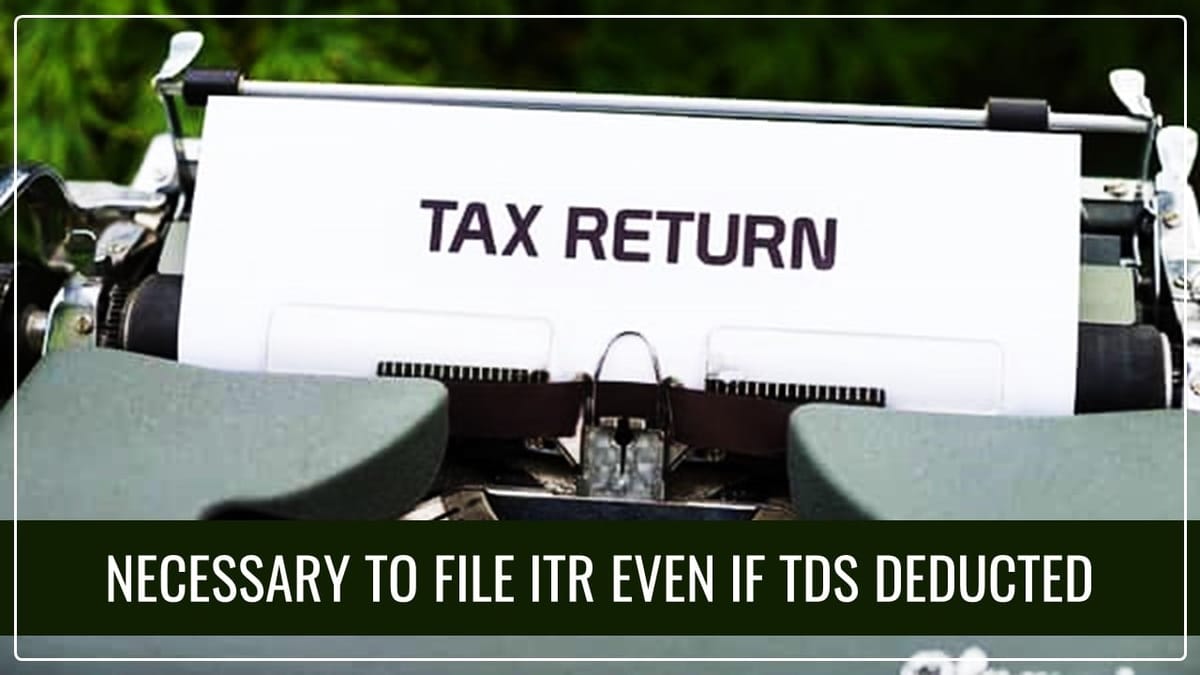Many salaried people believe that if their employer deducts TDS they don’t need to file an ITR, they are mistaken.
Anisha Kumari | Jul 13, 2024 |

Why It is Necessary for Salaried Employees to file ITR even if TDS is Deduct
Employers usually calculate and deduct taxes from employees’ salaries every year. However, even if your employer has already deducted tax. If you don’t intend to get a refund, you still need to file an Income Tax Return (ITR).
Many salaried people believe that if their employer deducts Tax Deducted at Source (TDS) they don’t need to file an ITR, they are mistaken. It can lead to tax notices from the Income Tax Department.
You must file ITR if your total income during the FY 2023-24 is above the basic exemption limit. For this period, the deadline to file ITR is July 31, 2024. The exemption limit is Rs.2.5 lakh under the old tax regime and Rs.3 lakh under the new tax regime for individuals under 60 years of age.
If TDS was deducted from your salary, your employer will give you Form 16. This shows how much tax was deducted. If TDS wasn’t deducted you should use salary slips or other proof of income to file ITR.
Even if your income is below the exemption limit you might still need to file an ITR in the following cases:
These conditions are specified in Seventh Proviso to Section 139(1)(b).
Individuals can only use Form 16 to calculate income from salaries. They must include all incomes earned during a year when filing the tax return.
Sometimes the TDS rate doesn’t match the actual tax rate. For instance, if you worked for two different companies. Each might calculate TDS based on half-yearly income. This leads to lower tax deductions. To correct this, you can pay the shortfall through self-assessment tax when filing ITR or inform the new employer’s HR for adjustment.
If you’re in a 30% tax bracket but have interest or dividend income taxed at 10%. You’ll need to file an ITR. Then pay the remaining 20% tax.
Here’s a simplified way to calculate your gross total income if you’re a salaried employee without business income. Add up all your income sources. These sources include salary, interest, dividends and other earnings. Subtract eligible deductions from the total income calculated, this gives your net taxable income.
Filing ITR ensures you comply with tax laws. Avoid potential penalties or Income tax notices from the tax department.
In case of any Doubt regarding Membership you can mail us at [email protected]
Join Studycafe's WhatsApp Group or Telegram Channel for Latest Updates on Government Job, Sarkari Naukri, Private Jobs, Income Tax, GST, Companies Act, Judgements and CA, CS, ICWA, and MUCH MORE!"